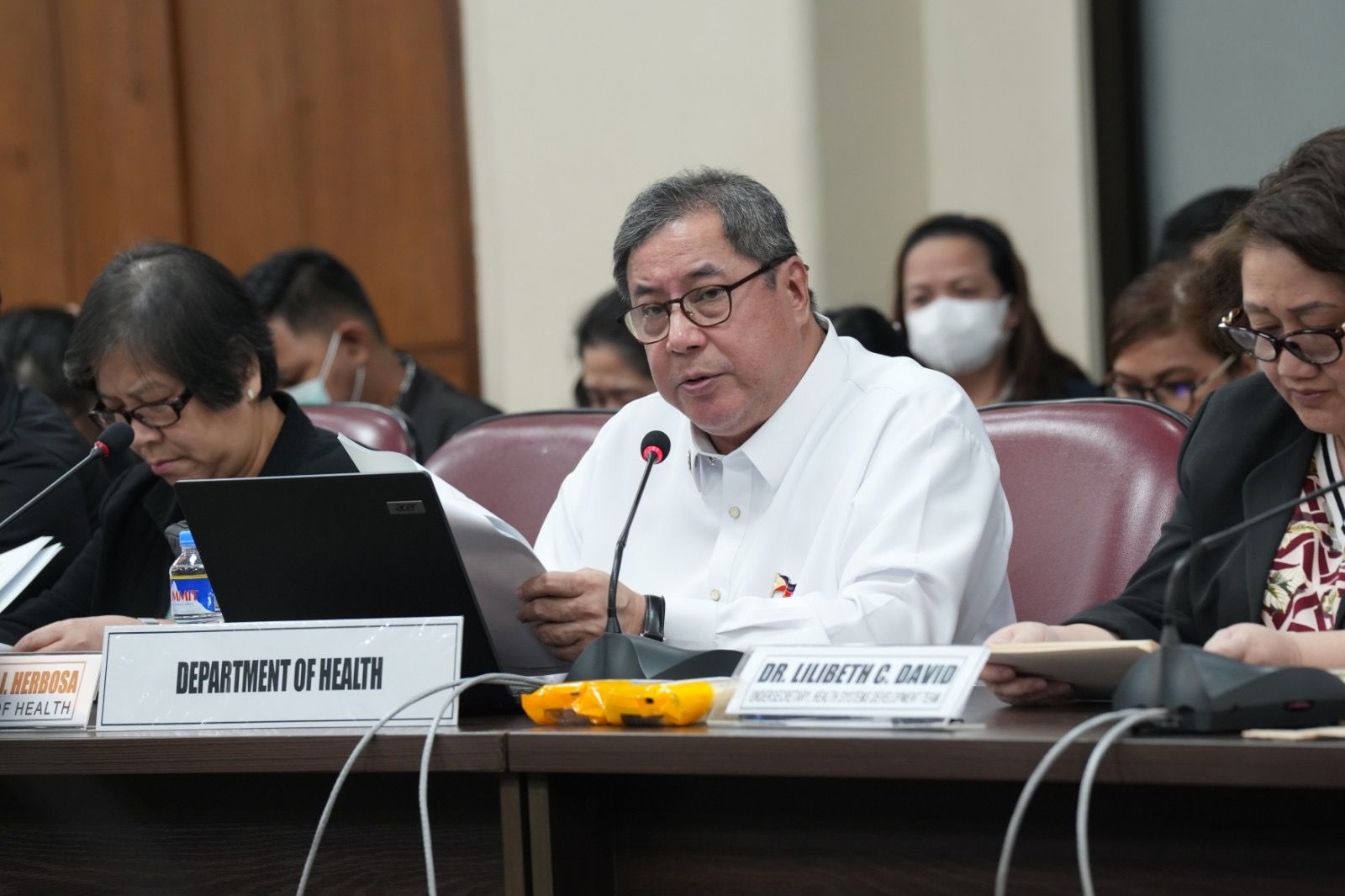DOH chief vows to cut Pinoys' out-of-pocket expenses by end of term
At A Glance
- Department of Health (DOH) Secretary Teodoro Herbosa told a House of Representatives panel that he plans to boost the government's support toward Filipinos' medical expenses to help lower their out-of-pocket spending by the end of his term.
 Department of Health (DOH) Secretary Teodoro Herbosa (PPAB)
Department of Health (DOH) Secretary Teodoro Herbosa (PPAB)
Department of Health (DOH) Secretary Teodoro Herbosa told a House of Representatives panel that he plans to boost the government’s support toward Filipinos' medical expenses to help lower their out-of-pocket spending by the end of his term.
“Kung mapataas ko lang (If I can increase it) to at least 50 percent at the end of my term, happy na ako doon (I will be happy with that),” Herbosa said during the DOH’s budget deliberations before the House Committee on Appropriations on Wednesday, Sep. 4.
“But the ideal, in global standards, is as high as 70 to 80 percent dapat ang support value ng ating mga programa (the support value of our programs),” he noted.
According to Herbosa, Filipinos currently shoulder about 40 percent of out-of-pocket expenditures for their medical needs.
However, he suggests that this figure may presumably be higher.
“Kapag tinitignan ko ‘yung mga pasyente…talagang almost lahat was out-of-pocket (When I look at the patients, they are mostly out-of-pocket),” he said.
Out-of-pocket expenditures are expenses paid by an individual that's not covered by health insurance.
In the Philippine context, this usually refers to the Philippine Health Insurance Corporation (PhilHealth), which handles the national health insurance program for every Filipino.
With this, Herbosa says there is a need for a “more efficient system” and an increase in benefit packages by PhilHealth to cater the medical expenses. If good changes are realized, he said this may even cover as high as 80 percent of healthcare costs.
On the hospital aspect, the DOH chief said they are continuously improving services in health facilities, as well as expanding the number of hospital beds and specialty centers.
“But I hope that PhilHealth fulfills its mission of paying the benefits para ‘yung out-of-pocket expense tuluyang bumaba na (will eventually decrease),” he continued.
In the meantime, Herbosa pointed out that there are certain government schemes that are helping decrease expenses from patients.
He cited the Medical Assistance to Indigent and Financially-Incapacitated Patients (MAIP), the no-balance billing policy, and PhilHealth’s premium payments paid for indigent Filipinos.
Since these programs cater to the impoverished populace of the country, he noted that the middle class should likewise be aided by the government given that they are not qualified to benefit from the schemes listed.
“Dapat tutukan natin, health economics-wise, na mapababa natin ‘yung out-of-pocket ng ordinary working class Filipinos,” added Herbosa.
(We must focus, health economics-wise, to lower the out-of-pocket expenses of ordinary working class Filipinos.)